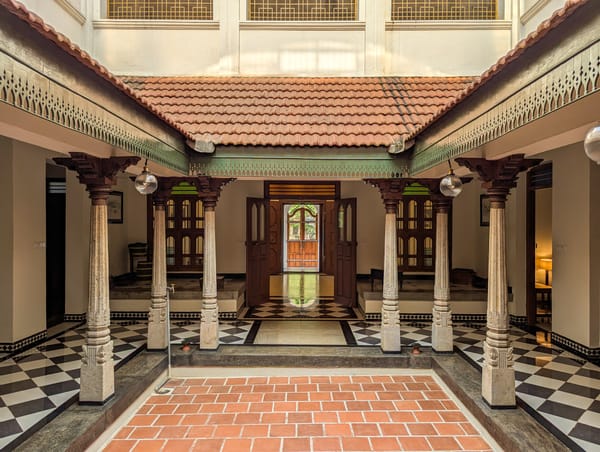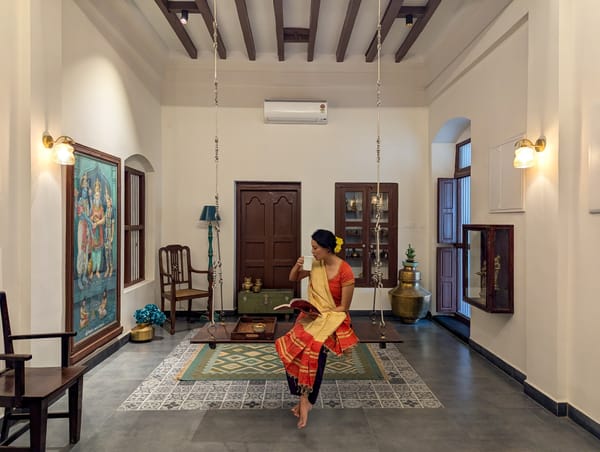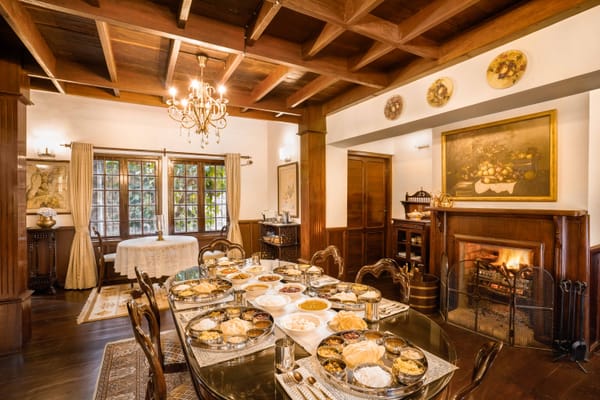Ahmedabad's Veechar Utensils Museum
Founded in 1984 by Mr. Surendrabhai Patel in collaboration with Mr. Jyotindra Jain, the Vechaar Utensils Museum is the only museum of its kind in the world. It houses antique, handmade household and kitchen artefacts, collected by Mr Patel over 60 years.
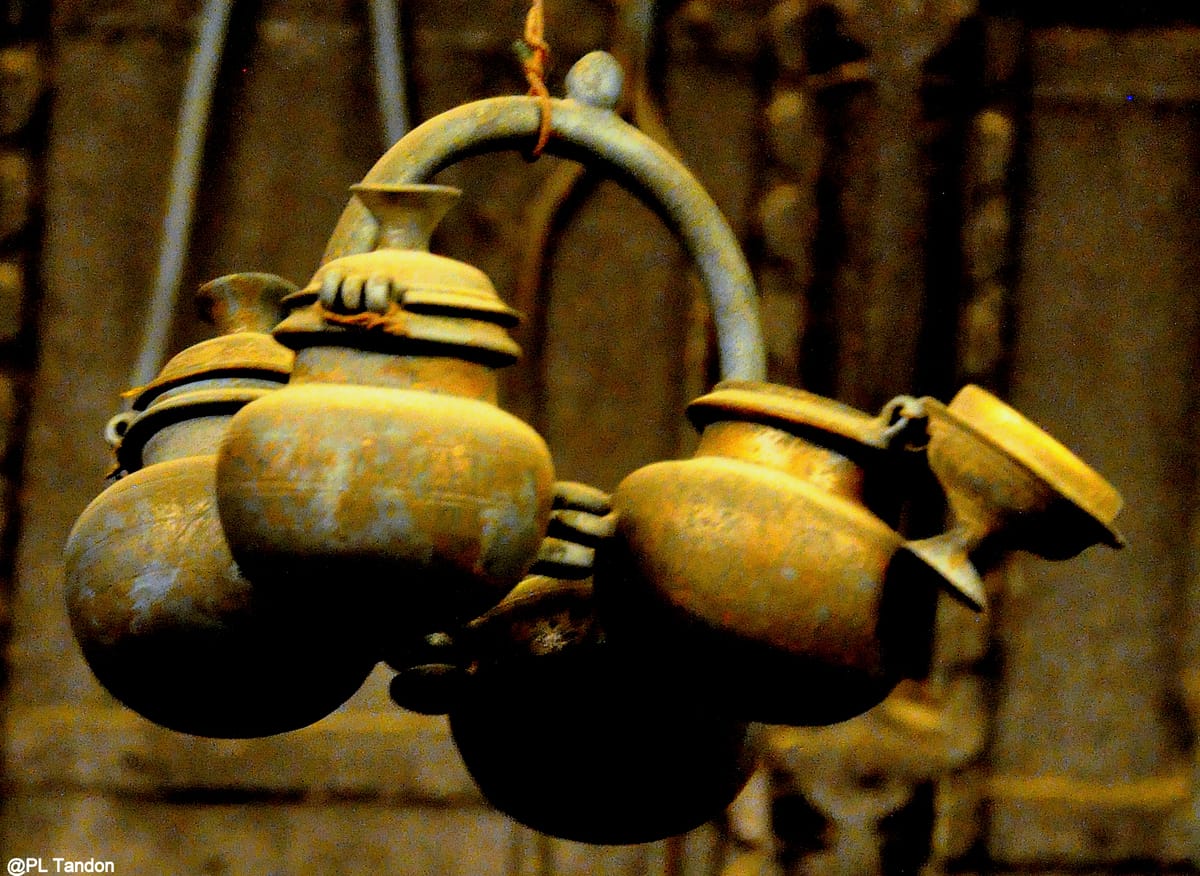
Unveiling the secrets behind age-old Indian Kitchens.
Indian cuisine is one of the most elaborate in the world. How? You may wonder.
It reflects an 8,000-year-old history of interactions with people who lived and transacted with the subcontinent. Here is a place that tries to narrate its evolution.
Founded in 1984 by Mr. Surendrabhai Patel in collaboration with Mr. Jyotindra Jain, the Vechaar Utensils Museum is the only museum of its kind in the world. It houses antique, handmade household and kitchen artefacts, collected by Mr Patel over 60 years.
Tour the Exhibits
Through the lens of these items, a story emerges that speaks about this region’s inherent expertise and refined cultural heritage. It substantiates the fact that India’s economy, pre-invasions, was a fully developed, sustainable model. These items, being handmade, were drawn up to perfection, keeping functionality as their core but with an artistic finish as an epochal trait.
This diverse collection not only highlights the historical evolution of culinary science in India but also underscores the civilization's mastery of health, engineering, chemistry and metallurgy.
The museum's exhibits include a fascinating array of items:
- Terracotta, Wood, Tin, Bronze, Brass, Iron, and Alloy Utensils: Reflecting the historical evolution of culinary science and showcasing advanced knowledge of chemistry and metallurgy.
- Cooking Vessels and Serving Utensils: Ranging from simple, everyday items used to cook local cuisines around the country, to elaborate pieces with artistic designs.
- Hand-Carved Wooden Items: Demonstrating exceptional craftsmanship, there are decorative windows, storage urns, caskets, barrels and even life-size log cabins, yokes used on the farm, weighing scale balance and so on.
- Multi-Functional Containers: With mysterious compartments and secret locking systems.
- Dual-Purpose vessels: Like water containers of varied sizes used as percussion instruments during nighttime bhajan-kirtan sessions.
- Decorative instruments: Like designer hairpins used as self-defense tools, daggers, knives, etc.
- Ancient Locks: From massive locks engineered to be used on fortress gates to intricate ones designed to outsmart invaders.
Each artefact in the museum reflects flawless functionality and exquisite design screaming creativity and symmetry, showcasing a matured civilization. The museum’s unique and vast collection has also been showcased internationally.
Furthermore, the museum leads you to experience the most authentic cuisine of this region, using raw materials procured locally and cooked fresh. Ponder on how this may have led to an elaborate study of human health called the 'ayurveda shastra'.
Vishalla Restaurant
After an enriching tour of the museum, the wafts of traditional spices and tadka sautees from the kitchen are sure to let you naturally gravitate towards the dining area.
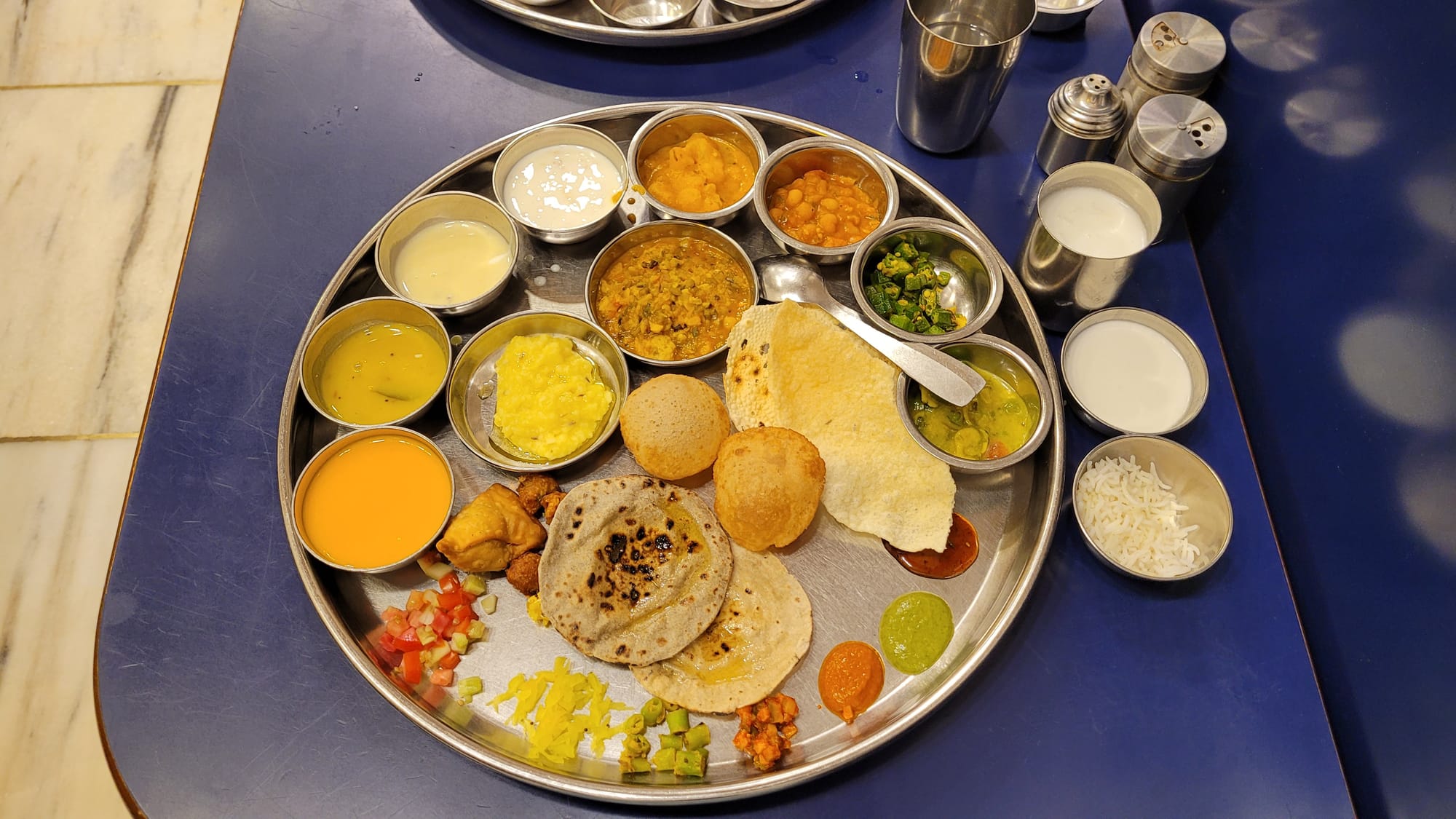
The experience
This restaurant was the brainchild of Mr Patel. It was established before the museum, in 1981, to offer a unique dining experience rooted in Ayurvedic principles. This is a shack with large chowkis (low-tables) designed in wood, to retain its character as much as possible, as Nakashima avows.
You will be seated cross-legged on the floor and food will be served to you on chowkis, Japanese style, which is also very much a traditional Indian practice as it aids digestion. Plates and cups are stitched up lily leaves—another traditional, sustainable and footprint-conscious practice.
Authentic local food
Food is first offered to God in a small ceremony in the campus temple. Right after, you are served a multicourse Gujarati feast prepared with fresh ingredients sourced locally, including milk from their own cowshed (Goshala). The meal is drawn up according to Ayurvedic shastra — the ancient science of good health.
From appetizers to main course and dessert, the meal satiates the tongue as well as the heart. It is served with love, resonating with our traditional practice of ‘treating guests as God’. After the meal, you are encouraged to take a 100-step walk, another practice rooted in Ayurvedic science that ensures good digestion, and thoughtfully integrated into the campus design.
Discover the Utensils Museum for Yourself in Ahmedabad
A visit to the Vechaar Utensils Museum and Vishalla restaurant offers an unparalleled cultural and culinary experience. The combination of a lip-smacking Ayurvedic feast and learning about the historical evolution of Indian cuisine are sure to provide you with a deep and enriching insight into India’s rich food heritage.
Visitor Information:
- Opening Hours: The museum is open from 3 PM to 10:30 PM every day except Mondays.
Contact and More Info: Visit the official website for additional details.
Stay at Fouzdar House and settle into the Amdavadi way of life and plan to have this immersive half-day food-heritage experience. Our host will help set up a special guided tour at the museum and will tell you more about the local cuisine that the Fouzdar kitchen dishes out. This would be a perfect start to your journey discovering India's ancient but rich culinary past.
